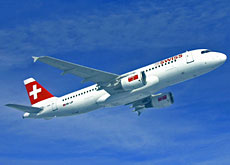Tourism takes step to reduce carbon footprint

A tourism summit in Davos ended on Wednesday with a plea that efforts to reduce the industry's carbon footprint should not come at the expense of poor nations.
Organisers of the conference, led by the United Nations and the Swiss government, said policies needed to be adapted to “encourage sustainable tourism reflecting environmental, social, economic and climate responsiveness”.
In the Davos Declaration, published on the final day, representatives agreed that the concerns and needs of the tourist industry should be included in international and national climate change policy-making.
The organisers want the recommendations to be factored into the UN’s overall climate change strategy to be negotiated in December in Bali, Indonesia, where the focus will be on post-Kyoto action.
The declaration asks for governments and international organisations to provide financial, technical and educational support to the industry. In addition, players in tourism – such as airlines, tour operators and hotel chains – should implement concrete mitigation measures.
Much of what was included in the final document was based on a UN World Tourism Organization (UNWTO) study released at the conference detailing the full extent of the industry’s carbon dioxide emissions.
All tourism activities, including business travel, account for five per cent of total CO2 emissions worldwide.
If reductions are not made soon, temperatures could rise by up to four degrees Celsius, which would spell the end for tourism and therefore the main economic driving force in many regions.
Impact
Tourist industries in these mostly developing nations in the Caribbean, Mediterranean, Indian and Pacific Oceans and Australasia would be hit by various factors.
These include changes in water availability, biodiversity loss, reduced landscape aesthetic, altered agricultural production, increased natural hazards, coastal erosion and flooding and damage to infrastructure.
These states would not only become less attractive because of more hostile climates, loss of coral reefs, snow cover or decimation of wildlife populations, but would become more costly to visit if CO2 levies are slapped on flights.
With the concerns of developing nations and the airline sector in mind, the Davos Declaration failed to include a key finding of the study to reduce emissions: “It is strongly advised to consider short-haul tourism as the main economic engine for poor areas in the world and not only count on long-haul international tourism.”
However, the lead author of the report, Daniel Scott from Canada’s Waterloo University, admitted that long-haul flights were a lifeline for many developing nations.
“That’s where we need to look at carbon offsets or other mechanisms such as emissions trading schemes,” he told swissinfo.
Essential air travel
A representative from the Pacific island of Samoa, Lelei Lelaulu, said long-haul air corridors needed to be recognised as essential transport infrastructure like roads or rail since a lot more money is transferred to poor countries through tourism than aid.
Roland Schmid of the Swiss branch of Tui acknowledged his company and other tour operators had the power to influence travellers’ decisions through holiday packages and the industry through the selection of airlines and hotels.
But he told swissinfo that eco-friendly operations were still the exception in tourism and even though customers wanted to reduce their carbon footprint, this was not a priority when choosing their destination.
swissinfo, Dale Bechtel in Davos
The second International Conference on Climate Change and Tourism was held in Davos from October 1-3.
It was organised by the UNWTO with the support of the United Nations Environment Programme, the World Meteorological Organization, the Swiss government and the World Economic Forum.
The Davos meeting was a follow-up to a climate and tourism summit held in Djerba, Tunisia in 2003.
A study released by Bern University on October 3 found that the Swiss are becoming more climate conscious but few are willing to change their travel behaviour or pay more for flights.
About 1,000 tickets are sold a month with a voluntary carbon offsetting fee attached, compensating for about 1-2% of all emissions produced by Swiss air passengers.
The university study found that if all of the air miles of Swiss residents were added up, they would equate to more than one million trips around the world every year.
CO2 emissions from international tourism accounted for 4.95% of the world total of 26,400 million tons in 2005.
Tourism is on a par with the chemical manufacturing industry but ranks far below agriculture (15%).
Transport was responsible for 75% of all tourism emissions, with aviation making up about 40% of the sector’s total.
By 2035 a 16% reduction of CO2 emissions compared with 2005 figures can be achieved by improving energy efficiency using technological advances and reducing energy use by favouring short- over long-haul travel as well as increasing length of stay in a destination.

In compliance with the JTI standards
More: SWI swissinfo.ch certified by the Journalism Trust Initiative













You can find an overview of ongoing debates with our journalists here . Please join us!
If you want to start a conversation about a topic raised in this article or want to report factual errors, email us at english@swissinfo.ch.